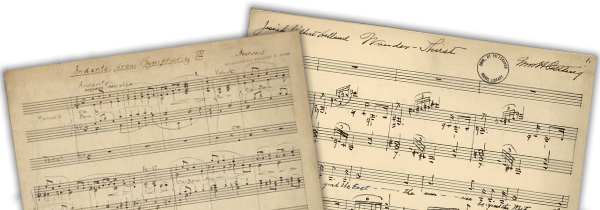
Firth, Pond & Co. deposited Stephen C. Foster’s “Parthenia to Ingomar” for copyright on April 4, 1859. The lyrics are by William Henry McCarthy, a friend of the composer from Pittsburgh.
According to Evelyn Foster Morneweck’s The Chronicles of Stephen Foster’s Family:
A large number [of songs] were brought out by S. T. Gordon and Horace Waters. All the publishing houses were hard pressed, and everyone, except government bondholders, was struggling to get along. Stephen’s songs continued to have a large sale in the Southern States, but to no benefit to himself or his northern publishers. A number of southern music houses, on receiving sheet music from the North, calmly appropriated it to their own use as they did not consider themselves bound by Union copyright laws. All restrictions were removed, and thousands of Confederate editions were reprinted from the publications of Firth, Pond and other northern companies. It might have been that the New York publishers did the same thing with southern compositions, but the best composers seem all to have been Northerners, or living in the North when war was declared. The late Walter R. Whittlesey, of the Library of Congress, discovered hundreds of Confederate songs with a large number of Stephen Foster’s songs advertised on the back pages. Mr. Whittlesey stated that the Foster songs that seemed the most popular in the Confederacy were “Come Where My Love Lies Dreaming,” “Fairy Belle,” “I See Her Still in My Dreams,” “Lula Is Gone,” “Parthenia to Ingomar,” and “Why No One to Love.”
Later Mornweck writes:
According to Billy Hamilton, Stephen, on his way down the [Ohio] river, finished a song he had been working on called “Parthenia to Ingomar.” Only the music is his; the romantic verses were written by William Henry McCarthy, a young actor friend of Stephen’s, who was one of the congenial group that used to meet at the Hazelwood home of Harry and Rachel Keller Woods for evenings of sociability and music. Mr. McCarthy’s poem, “Parthenia to Ingomar,” evidently is based on a popular contemporary drama entitled Ingomar, The Barbarian which was adapted from the German by Maria Lovell, and, according to some remarks published on an early copy of the play now in the Foster Hall Collection, was “produced simultaneously in New York, on the evening of the 1st of December, 1851, at the Bowery and the Broadway Theatres, and was triumphantly successful at both.” Stephen collaborated with William H. McCarthy on two other songs, “For Thee, Love, for Thee” and “Linda Has Departed.” All three of these songs were published the following year, 1859.